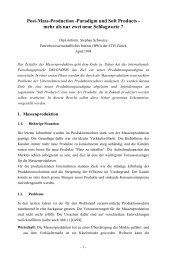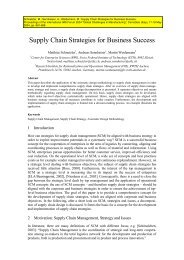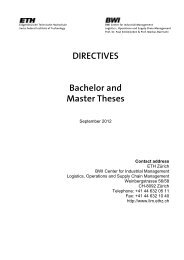The China Venture
The China Venture
The China Venture
Create successful ePaper yourself
Turn your PDF publications into a flip-book with our unique Google optimized e-Paper software.
<strong>The</strong> courts are the state organs exercising exclusive state adjudicatory power. Higher level<br />
courts supervise the work of the lower courts, and the courts at various levels are responsible<br />
to the respective people’s congresse s that created them. <strong>The</strong> courts have four levels, namely<br />
the Supreme People’s Court at the national level, high courts at provincial level, intermediate<br />
courts at prefectural level and basic courts at county and city level, respectively. <strong>The</strong><br />
procuratorates are the organs for legal supervision. Within the structure of the procuratorates,<br />
higher level proc uratorates direct the work of those at lower levels. <strong>The</strong> procuratorial organs<br />
at various levels are responsible to both the corresponding people’s congresses which created<br />
them and pe ople’s procuratorates at higher levels.<br />
<strong>The</strong> trial process is greatly influenced by the civil law jurisdiction in which the judge is the<br />
dominant party conducting a trail. In principle, each case has at the most two trails, which<br />
means that the right to appeal is limited. However, the parties may challenge a final decision<br />
through a trial supervision procedure.<br />
According to law, courts are to exercise their power independently and free from interference<br />
from any organisations or individuals. However, there exist in practice all sorts of interfe rence<br />
from inside and outside sources. Whereas interference from inside sources are known to<br />
Western systems as well, interference from outside sources do create a certain unease among<br />
Westerners. Protectionism between judges and the respective appointing bodies is still quite<br />
frequent in contemporary <strong>China</strong>. Very often judgements are entered under pressure from local<br />
governments and other organisations to bend justice for local interests or economy. Also in<br />
some places, taking gifts from parties to a litigation is not an uncommon practice. 9<br />
<strong>The</strong> above problems as regards the judicial independence are a lesser issue for foreigners than<br />
for <strong>China</strong> itself. <strong>The</strong> so-called Two-track System is a feature in Chinese law that treats foreign<br />
business concerns differently from domestic ones. In different aspects, such as taxation,<br />
foreign exchange, but especially in dispute settlement, foreign firms, as an incentive to<br />
investment in <strong>China</strong>, are accorded different, and in general more favourable, treatment than<br />
domestic firms. 10 According to this Two-track System, the principal institution for the<br />
resolution of disputes involving foreign firms is the <strong>China</strong> International Economic and Trade<br />
Arbitration Commission. It serves in all arbitration cases in which a foreign person, legal or<br />
9 This problem has been addressed by a new law lately, the actual results however are yet to be seen.<br />
10 From <strong>China</strong>’s point of view, this system appears to be a necessary stop-gap measure in the<br />
evolution of its economic and social reform. It was obvious that the general reform of the Chinese legal<br />
system would take time. But the special need for foreign investment law could not wait. <strong>The</strong>refore,<br />
<strong>China</strong> had to start with the latter first, while at the same time beginning to build a body of domestic law.<br />
13






